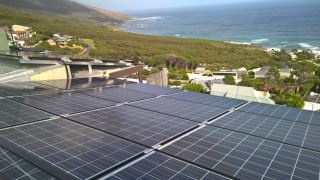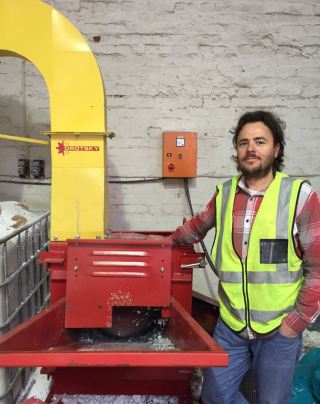Carbon Tax Training 07 November 2019
Join us as we unpack the provisions of the new Carbon Tax Bill.
The Carbon Tax Bill which has been debated for the past 8 years has finally been signed into law and has been effective since 01 June 2019. The Bill imposes a liability on the greenhouse gases emitted during the production of goods and services. The nominal tax rate is R120 per tonne of carbon emitted, although with the various tax-free allowances the rate could drop to between R6 and R48 per tonne.
Allowances included are:
- a basic tax-free allowance of 60 percent for all activities,
- a 10 percent process and fugitive emissions allowance,
- a maximum 10 percent allowance for companies using carbon offsets to reduce their tax liability,
- a performance allowance of up to five percent for companies reducing the emissions intensity of their activities,
- a five percent carbon budget allowance for complying with the reporting requirements,·and
- a maximum 10 percent allowance for trade exposed sectors.
Our 1 day workshop will assist you to understand:
- Who is liable for carbon tax I The Greenhouse Gases I The tax base - Scope 1 emissions I Rate of tax·Tax Period I Calculating emissions I Tax allowances and offsets I Sectors not covered by the tax I How to calculate tax liability and use allowances to maximise tax reductions
Date: 07 November
Time: 9h00-15h00
Venue: 36 Wierda Road West, Sandton
Cost: R2 950.00pp
Contact This email address is being protected from spambots. You need JavaScript enabled to view it. to reserve your seat
Successful launch of IBC SOLAR South Africa
South African regional company of the German photovoltaic system provider records initial successes in the distribution and project business
Cape Town, 09 May 2017 – IBC SOLAR AG, a global leader in photovoltaic (PV) systems and energy storage, has been active since January in the growth market of South Africa with its own regional company. Initial projects all over the country have already been successfully realised. From 16 to 18 May, IBC SOLAR South Africa (Pty) Ltd. will be showcasing its products at African Utility Week in Cape Town, one of the leading trade fairs for the African energy industry, where IBC SOLAR will exclusively launch the new SMA Sunny Boy Generation.
IBC SOLAR has been working together exclusively with its partner maxx | solar energy (Pty) Ltd. in the South African market since 2014. The two companies formed the new company IBC SOLAR South Africa (Pty) Ltd. based in Cape Town in January 2017. IBC SOLAR South Africa now offers its customers a perfect combination: over 35 years' experience of planning and realising PV systems of all sizes, together with an established partner that is familiar with the South African market and has access to a strong network of highly trained PV installers in South Africa.
The Management Board of IBC SOLAR South Africa consists of Albert Engelbrecht (IBC SOLAR AG) and Dieter Ortmann (maxx | solar energy). Locally, General Manager Daniel Haitzler is in charge of the regional company. Together with his team of four people at the Cape Town headquarters and Johannesburg, they are striving to a continuing market success.
“The South African PV market has substantial growth potential. Above all, there is a great need for self-consumption and storage systems for private households and the commercial sector,” says Daniel Haitzler. “In South Africa, we are taking a solution-oriented approach. Instability of the electricity supply and rising power costs are very challenging for private persons and companies alike. That's where we come in. We analyse, advise and offer customers a solution that meets their individual needs, which might be a diesel hybrid, off-grid or storage system.”
At the African Utility Week from 16 to 18 May, visitors to IBC SOLAR (Hall 1, German Pavilion, Stand B7-2) can find out more about the options for energy supply with solar power in South Africa.
15 Tonnes of recycled polystyrene used in construction of new Table Bay Mall
More than 15 tons of recycled, Expanded Polystyrene (EPS) have already gone into the production of 20,000 Greenlite Concrete blocks used in the new Table Bay Mall that is currently being constructed. Expected to open its doors at the end of September this year, this 65 000 m² regional shopping centre is located on a 20 ha site on the corner of the R27 (West Coast Road) and Berkshire Boulevard in the heart of the rapidly growing West Coast area.
Vivid Architects / Group Five Construction contractors are at the helm of the project, and specified Greenlight Concrete blocks for use primarily on the fire escape passages owing to the product’s excellent fire rating.
“With climate change looming and the rising cost of energy, building contractors are looking at sustainable building options. Over the past 18 years, we have been involved in the manufacturing and installing of Alternative Building Technologies. We were looking for a more environmentally friendly way of implementing our insulated building systems, when we started experimenting with recycled polystyrene as the basis for our energy efficient walling systems,” explains Hilton Cowie, Technical Director of Greenlite.
Greenlite’s Insulated Concrete is the culmination of more than 18 years’ of experience and research, the blocks consist of recycled polystyrene which is used as a lightweight aggregate mixed with cement and additives to form insulated, soundproof, fireproof, water-resistant lightweight concrete blocks and screeds that have already been used in various large, commercial projects such as the Trumpet Towers in Johannesburg, the BMW Pavilion and Zeits Museum in the V&A Waterfront, Baywest Mall in Port Elizabeth and the Gautrain Station in Sandton.
“The developers were amazed at how quick and easy it was for them to build the walls using Greenlite blocks. Because these blocks are lightweight, they are easy to move around the site and the engineers saved weight loading onto the suspended concrete slabs,” Cowie says.
These blocks are proving invaluable to the construction industry where clients and contractors are able to reduce their structural concrete and steel requirements due to the lightweight nature of the walls. The highly insulated walls also offer the added benefit of further energy savings to the client over the lifespan of the building. Greenlite Concrete accepts any form of polystyrene for recycling on their premises, and is willing to assist in arranging collection of large quantities of Polystyrene.
"We recycle and use the polystyrene faster than we can get our hands on it. Builders Warehouse are now also exclusive stockists of our various sized Jumbo blocks and screeds, creating an even greater demand for polystyrene that we can use,” Cowie explains.
“We are very excited about the growing popularity and rapid market acceptance of this new building technology. Not only does it have a direct and positive impact on our recycling rates by diverting large volumes of post-consumer polystyrene from our country’s landfills, but it also helps to create more employment opportunities, reduce building costs and increases productivity. We are hoping to improve on our 2016 record of 2 036 tons of polystyrene that were successfully recycled through our Project Build,” concludes Adri Spangenberg, Director of the Polystyrene Packaging Council.
For more information, visit www.polystyrenepackaging.co.za or www.greenliteconcrete.co.za



